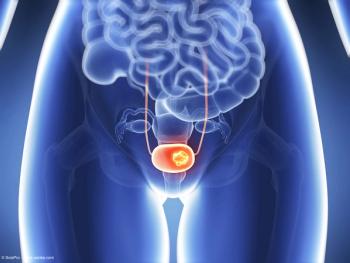
"My goal is to always meet them there in clinic, and then just start that relationship, in a sense of, I'm there for whatever they need," says Bree Duncan, RN, BSN.

"My goal is to always meet them there in clinic, and then just start that relationship, in a sense of, I'm there for whatever they need," says Bree Duncan, RN, BSN.

The phase 2a open-label dose ascending study to assess the safety, tolerability, and efficacy of VMB-100 in female patients with moderate SUI is expected to begin in the first half of 2024.

"We as a specialty have to do a better job of educating our colleagues and referring docs," says Roger R. Dmochowski, MD, MMHC, FACS

W. Kimryn Rathmell, MD, PhD, an internationally recognized expert in kidney cancer, is Chair of the Department of Medicine and Physician-in-Chief at Vanderbilt University Medical Center.

“How we set up patients for success comes not just in our individual clinical encounters, but also how we approach patient care as an organization,” says Niels V. Johnsen, MD, MPH.

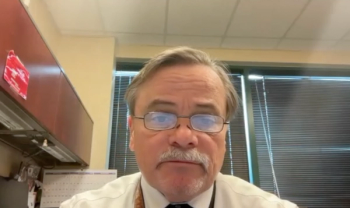
"The background for this paper stems from the increasingly identified need to do a better job of management of urinary tract infection, not only from a recognition standpoint, but also from a diagnostic and treatment standpoint," says Roger R. Dmochowski, MD, MMHC, FACS.
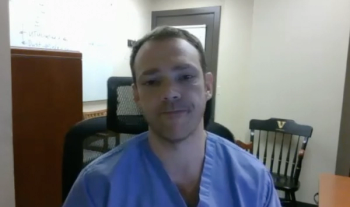
“I think the key to remember for a lot of what we're doing is that kidney stone disease is complicated. It's a really heterogenous patient population,” says Nicholas L. Kavoussi, MD.

"The ABU continues to reevaluate all policies related to diplomates. As medical practice continues to evolve in United States, and these changes affect the practitioners of medicine, likely further changes will be necessary in board certification procedures," writes Roger Dmochowski, MD, MA (Conflict Management and Resolution), MMHC, FACS.
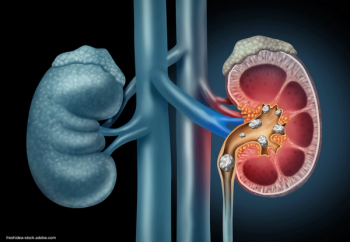
A multidisciplinary team at the Vanderbilt Institute for Surgery and Engineering is collaborating on a 3D navigational system to help limit kidney stone fragments that remain after surgery.

The study assessed 120 women with overactive bladder for associations between anxiety and somatic symptoms, quality of life, quantitative sensory testing measures, and psychological stress symptoms.
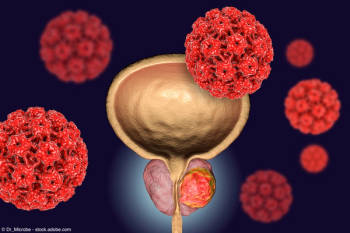
Active surveillance is the preferred treatment option for men with low-risk prostate cancer and an option for some men with favorable intermediate-risk prostate cancer.

“This fellowship was one of the first FPRMS fellowships and one of only three ever created which fully incorporated both urology and gynecology in a single training program,” said Roger Dmochowski, MD.

“Vanderbilt researchers are participating in numerous projects related to PRS and disease risk; studies such as this highlight the importance of evaluating whether novel clinical tools actually enhance care,” said Kerry Schaffer, MD.

"Given that PCR testing may have a benefit for specific cohorts, it is recommended that more clinical evidence be provided to better guide Medicare in defining 'medical necessity,' ” write Stephanie Gleicher, MD, MPH, and Roger R. Dmochowski MD, MMHC, FACS.

Researchers compared survey responses from patients who had in-person visits and those who used telehealth consultations at Vanderbilt University Medical Center.

“I just hope that people are as enthusiastic about this new company, as [I] and my coauthors are,” says Ruchika Talwar, MD.

“One of the goals of this study was to look at whether 24-hour urine testing in the VA population included all the important components of 24-hour urine panel testing,” says Ryan Hsi, MD, FACS.

“I would say that we did not anticipate the degree of potential cost savings,” says Ruchika Talwar, MD.

“Our study offers molecular and cellular insights into this aggressive subtype of prostate cancer, which we hope will ultimately impact patient care,” said the study’s lead author, Hong Yuen Wong, PhD.

"In the office, absolutely, I should be called by my profession," says one urologist.

“The rates of testing declined slightly, about 2 absolute percentage points, over the study interval, despite the introduction of guidelines recommending it during the study period,” says Ryan Hsi, MD, FACS.

Jeffrey Tosoian, MD, MPH, recaps recent updates from the TheraP, ARAMIS, TITAN, ARASENS, and ATLAS prostate cancer trials.

The researchers assessed gender differences in patients with interstitial cystitis/bladder pain syndrome (IC/BPS).

Kelvin Moses, MD, PhD, interviews Tracy M. Downs, MD, about progress and remaining challenges regarding diversity, equity, and inclusion in the field of urology.

“The benefit of the clinic is a holistic approach to the survivorship care that takes into account things that we as urologists don’t usually consider in our everyday patient encounters,” said Niels Johnsen, MD, MPH, assistant professor of Urology, Division of Reconstructive Urology and Pelvic Health, Vanderbilt University Medical Center.
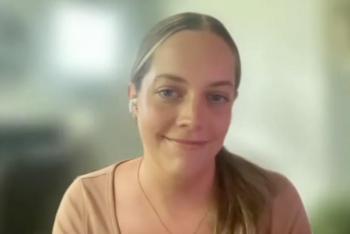
“Health care disparities are very complex issues; it’s not like a linear cause-and-effect relationship,” says Elisabeth M. Sebesta, MD.

“[We] found that women were spending on average, nearly $35 a week on incontinence products in the highest symptom severity, which is a huge financial burden,” says Elisabeth M. Sebesta, MD.

Amy N. Luckenbaugh, MD, recaps 5 presentations from the 2022 American Society of Clinical Oncology Annual Meeting.

"Now with FDA approval, patients will have much improved ability to use this efficacious therapy on a long-term basis, which is most beneficial for them," Roger R. Dmochowski, MD, MMHC.